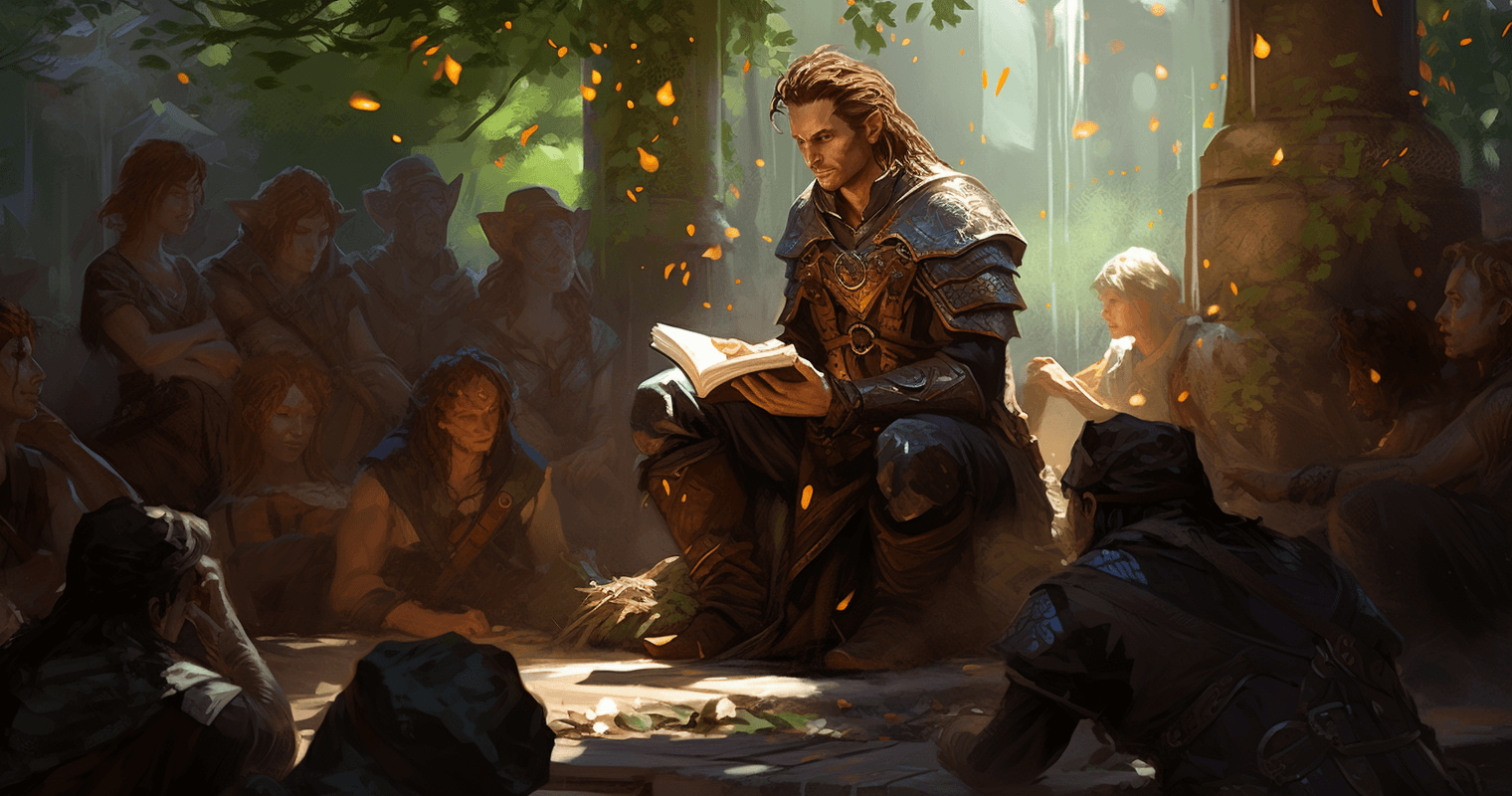
8 Key Roles of Dice in Shaping Storytelling Games and Narratives
 In the realm of storytelling games, dice are far more than numbered cubes. They are catalysts of tension, arbiters of fate, and unexpected storytellers in their own right. Every roll can spark triumph, failure, or unforeseen twists that reshape entire narratives. For players and game masters, dice are not just tools of chance, they are essential instruments of creativity.
In the realm of storytelling games, dice are far more than numbered cubes. They are catalysts of tension, arbiters of fate, and unexpected storytellers in their own right. Every roll can spark triumph, failure, or unforeseen twists that reshape entire narratives. For players and game masters, dice are not just tools of chance, they are essential instruments of creativity.
Whether you’re rolling gemstone dice for a climactic battle or using resin dice for casual play, the outcome often drives the flow of the story in ways no one could have scripted beforehand. Let’s explore the eight key roles dice play in shaping storytelling games and why these humble tools remain at the heart of tabletop adventures.
The Element of Chance
At the core of storytelling games lies uncertainty, and dice embody that element of chance. When players roll to determine outcomes—whether picking a lock, scaling a cliff, or persuading a reluctant king—they’re inviting unpredictability into the story.
Without dice, narratives might feel too scripted or predictable. Dice ensure no two adventures play out the same way. A perfect roll might mean a daring escape, while a low roll could turn a small challenge into a dangerous complication. The randomness keeps the table alive with anticipation.
Shaping Character Arcs
Dice play a vital role in defining character journeys. While backstories and player choices lay the groundwork, dice introduce the unexpected beats that make arcs dynamic.
- Critical Successes: These moments create defining victories, allowing characters to shine in ways that become legendary at the table.
- Critical Failures: Just as impactful, failures often spark humor, hardship, or growth. They can turn cocky heroes into humbled adventurers or open doors to storylines players never considered.
The dice help turn characters into living, evolving figures whose fates are anything but certain.
Driving Plot Turns
Beyond shaping individual arcs, dice rolls can alter entire storylines. A single failed persuasion check might lead to war instead of peace. A natural 20 on a desperate stealth attempt could save the party from certain doom.
This unpredictability ensures no campaign is ever a repeat of the last. Just as DND dice sets come in endless colors and styles, the narrative possibilities they unlock are infinite.
Influencing Decision Points
Storytelling games thrive on meaningful choices. But what makes those choices impactful is the dice that decide their outcomes.
For example:
- A rogue chooses to steal a precious jewel. The dice decide if they escape with treasure or spark a city-wide hunt.
- A cleric calls upon divine aid. Success could mean salvation, while failure may leave allies vulnerable.
The gamble adds weight to every decision, forcing players to weigh risk against reward.
World-Building and Crafting Realms
Dice also shape the very worlds in which stories take place. Many systems include random tables for terrain, weather, towns, or even NPC personalities—all determined by dice rolls.
By introducing randomness into world-building, dice inspire creativity for game masters and players alike. Instead of a static setting, the world feels alive, shaped as much by chance as by intention.
This is where accessories matter too. Just as gemstone dice feel majestic when rolled for a king’s decree, resin dice might be used to determine the chaotic nature of a shifting magical storm. The dice themselves add atmosphere to the act of creation.
Creating Tension and Drama
There’s nothing quite like the silence before a crucial roll. Every player leans in, waiting to see if fate will bless or curse the party.
- Success brings cheers and relief.
- Failure brings groans, laughter, or gasps of shock.
This tension is one of the most memorable parts of storytelling games. Dice transform the room’s energy with every clatter, making each session emotionally charged and unforgettable.
Balancing Chaos and Player Agency
Storytelling games are a dance between control and unpredictability. Players make choices, but dice determine their outcomes. This balance keeps the story fair and dynamic.
The randomness doesn’t take away agency, it enhances it. Players still decide what their characters attempt; the dice simply reveal the consequences. This collaboration between free will and chance is what keeps games fresh session after session.
Dice as Storytellers
When viewed together, it’s clear that dice themselves are storytellers. They:
- Decide whether the hero’s sword strike fells the villain or glances off harmlessly.
- Introduce dramatic failures that become running jokes or heartfelt turning points.
- Build worlds that surprise even the game master.
Every die, from the smallest d4 to the mighty d20, adds its own voice to the shared tale. And when paired with unique DND dice sets such as gemstone dice that gleam like relics, resin dice that sparkle with swirls, or metal dice that hit the tray with thunder, the narrative feels even more tangible.
Why the Right Dice Matter
The role of dice goes beyond function. The aesthetics and feel of dice can enhance immersion.
- Gemstone Dice: Their weight and beauty make each roll feel significant, perfect for critical moments.
- Resin Dice: Affordable and versatile, they come in endless designs that can match a character’s theme.
- Metal Dice: Durable and dramatic, they suit players who want each roll to sound as powerful as it feels.
Just as dice influence storytelling, your choice of dice influences your connection to the story. Players often select dice that match their characters, creating a ritual where the tools of chance become part of the roleplay itself.
Conclusion
In storytelling games, dice are never just randomizers. They’re the pulse of the narrative, guiding characters through triumphs and failures, steering plots into unexpected directions, and creating unforgettable tension at the table. They bring worlds to life, balance chaos with agency, and act as storytellers in their own right.
Whether you’re using gemstone dice that gleam with gravitas, resin dice that burst with color, or complete DND dice sets ready for any encounter, remember that every roll is part of the story. The next time you sit at the table, let the dice speak. Their voice may surprise you, challenge you, or inspire you—but it will always make the story richer.
So may your rolls be bold, your narratives full of twists, and your dice forever the storytellers of your adventures.



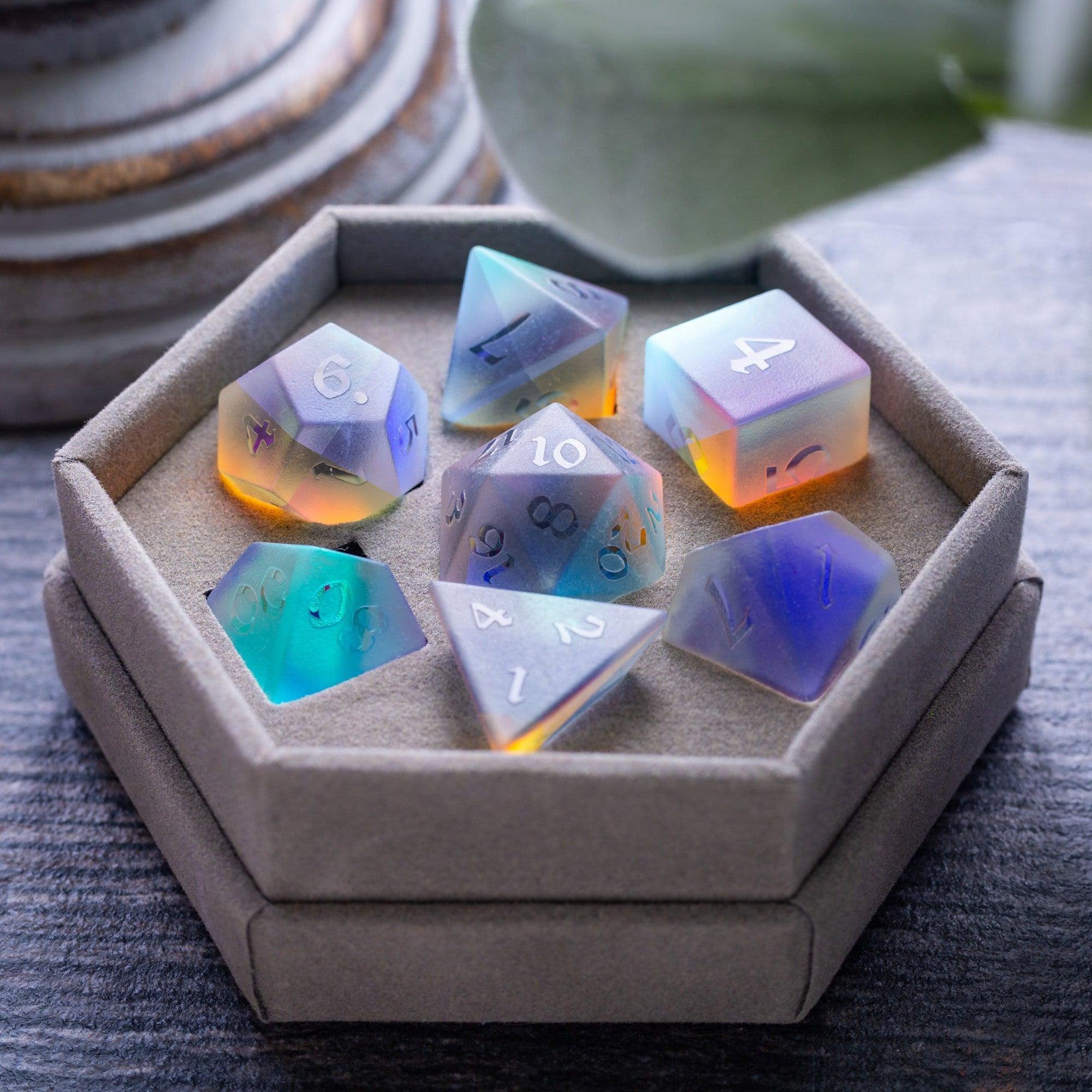
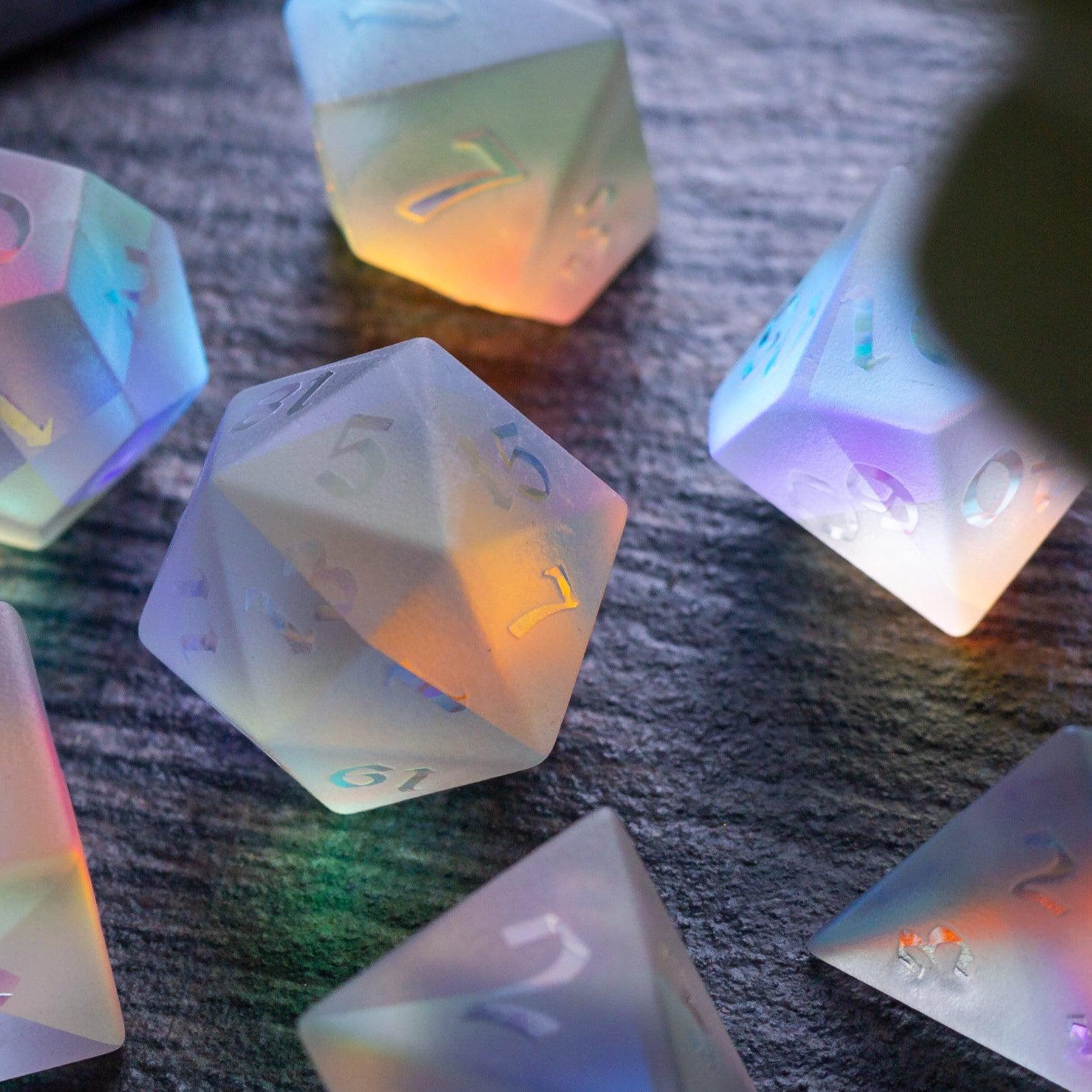
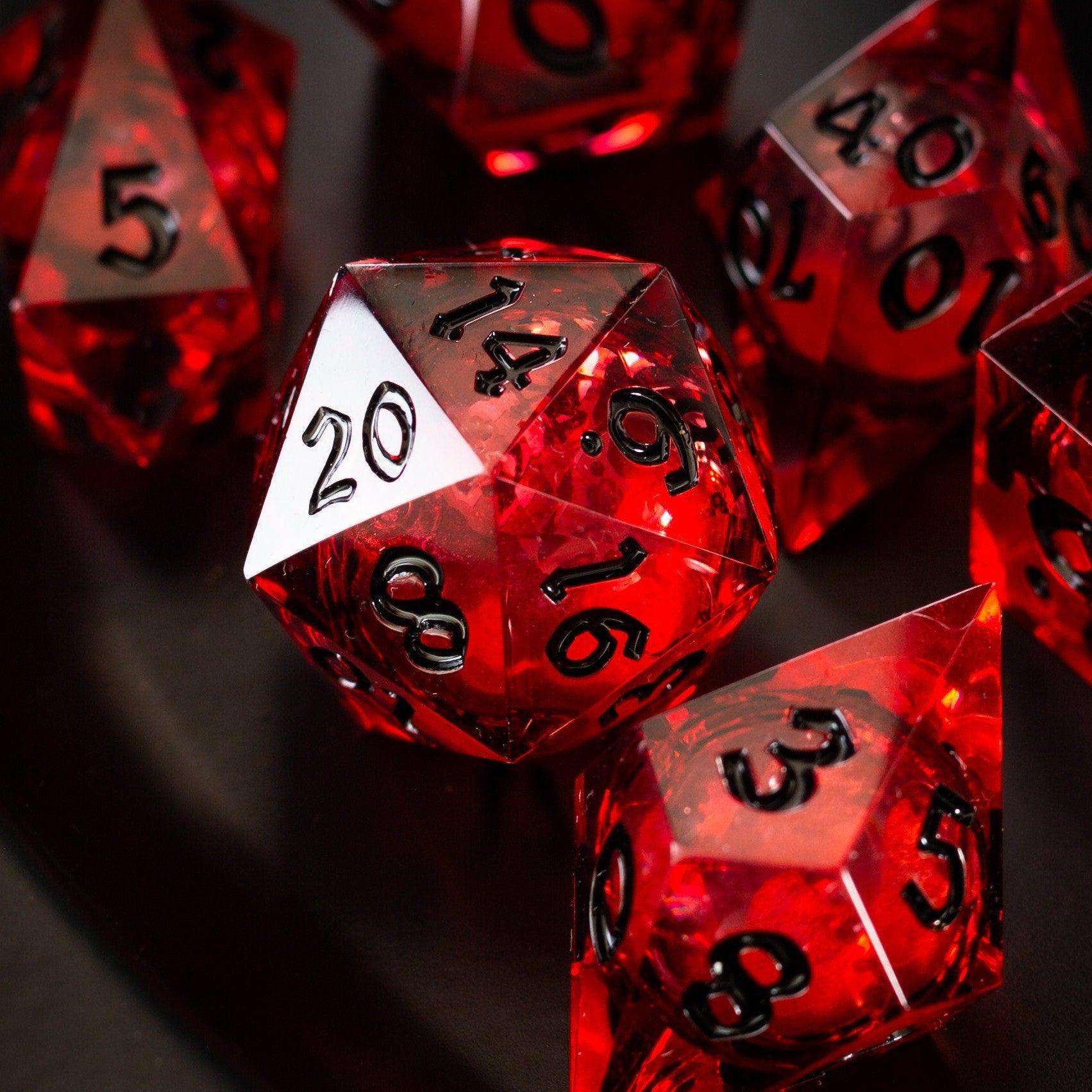
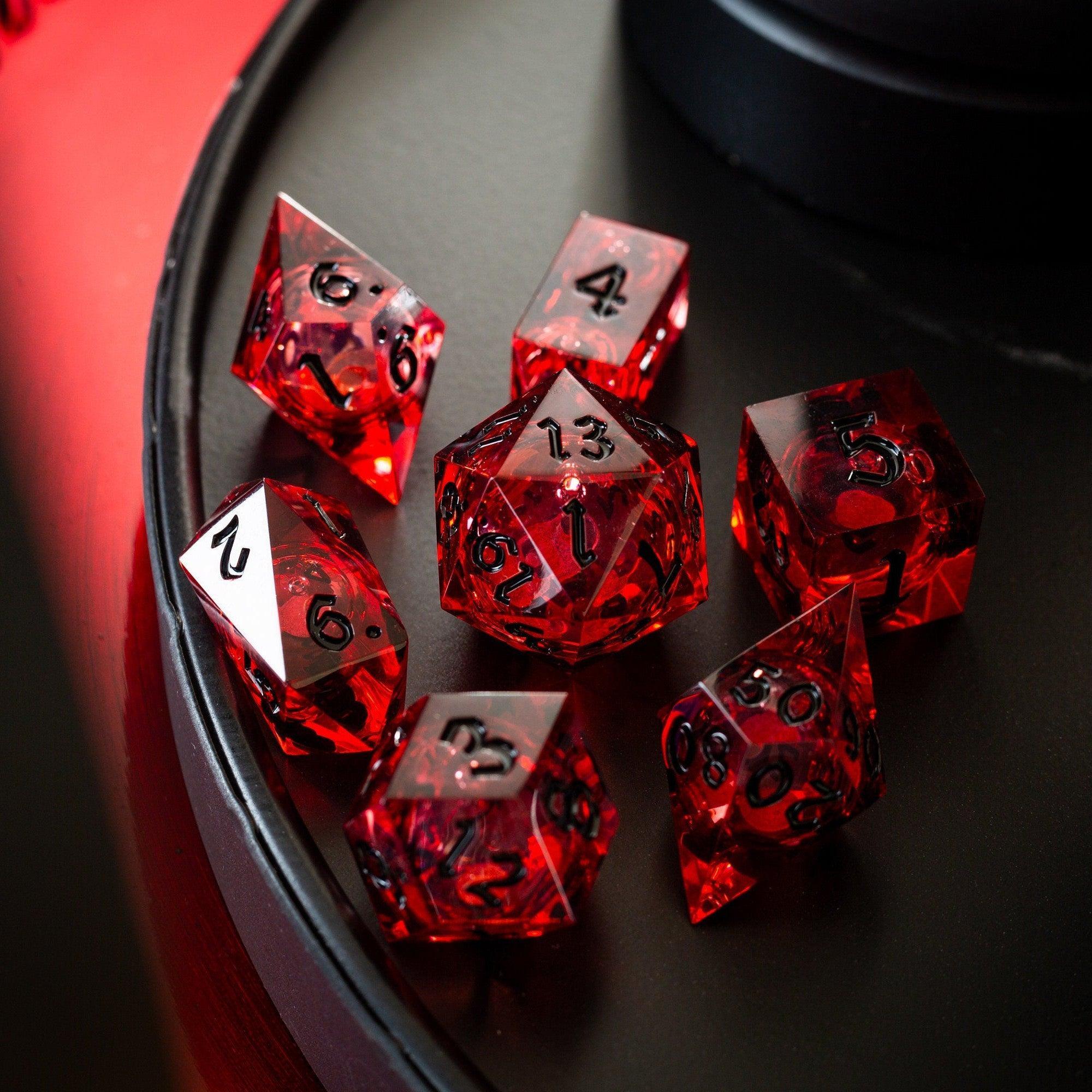
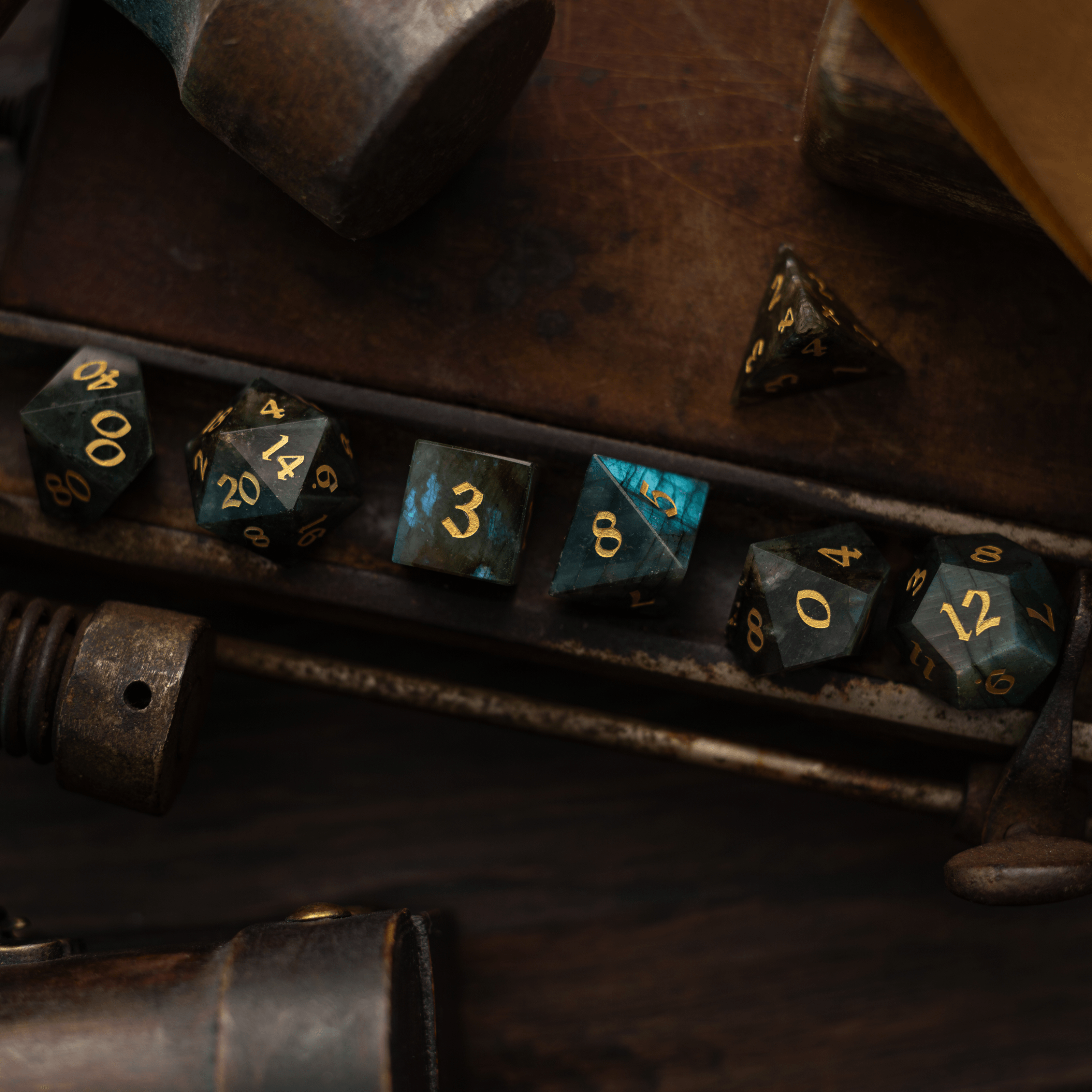
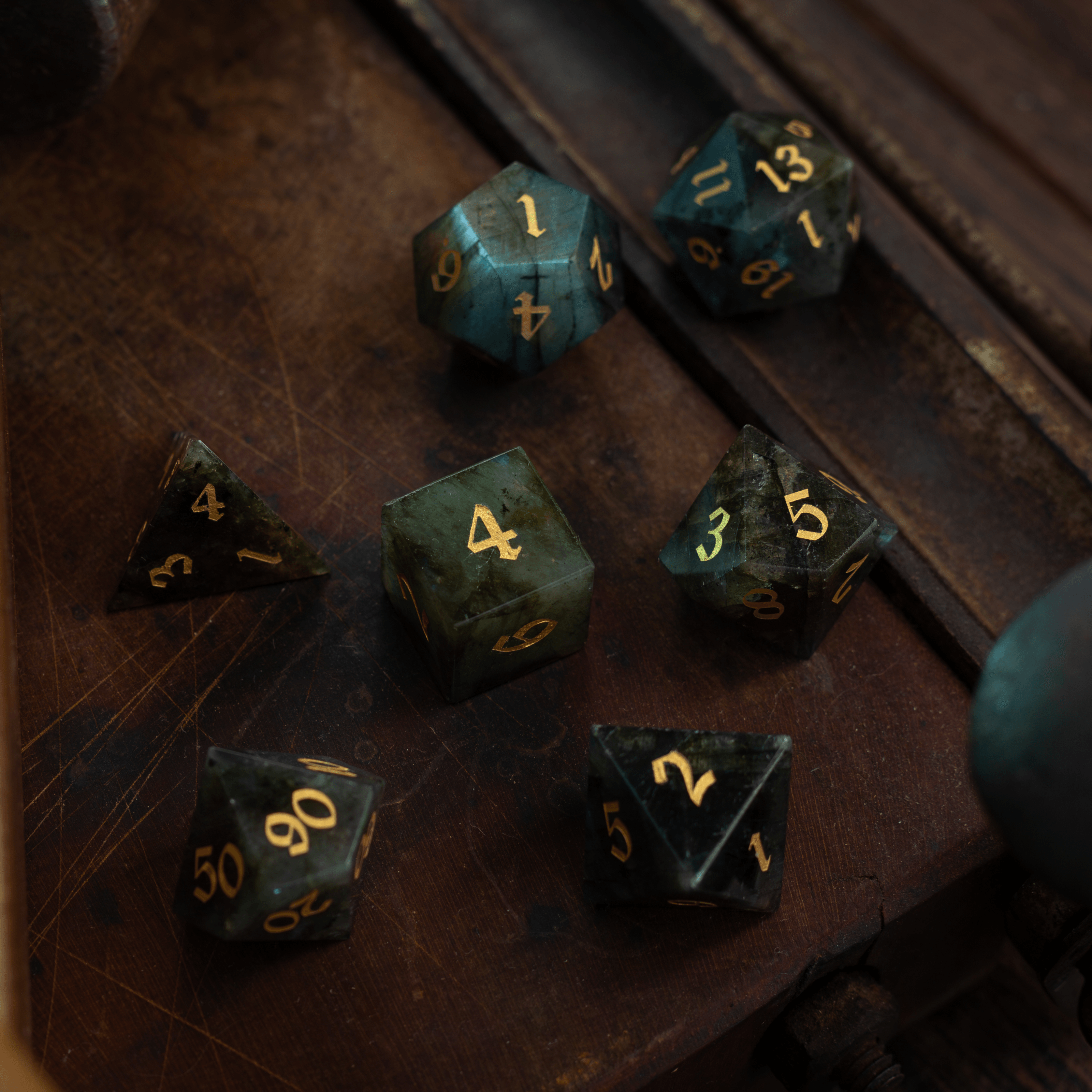
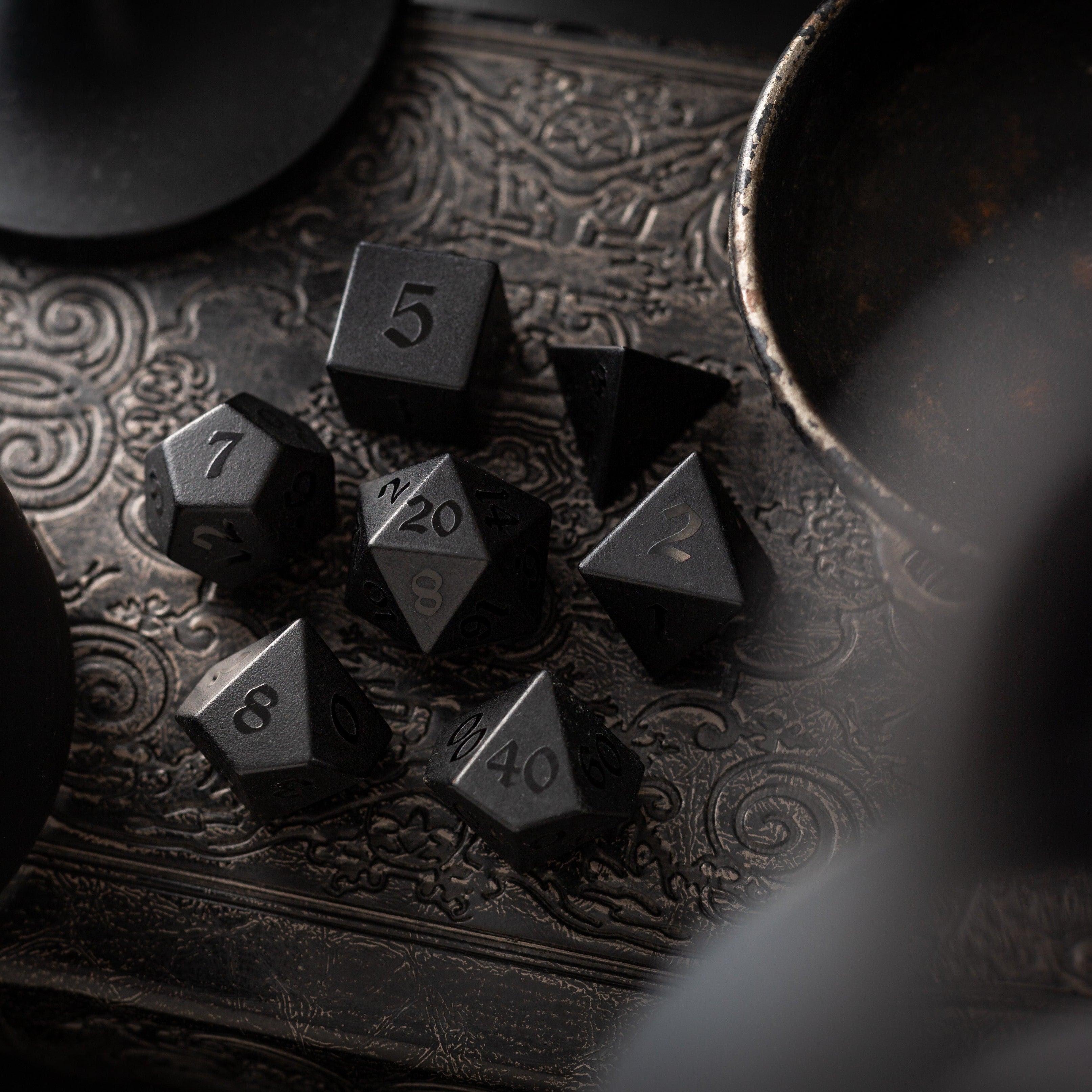
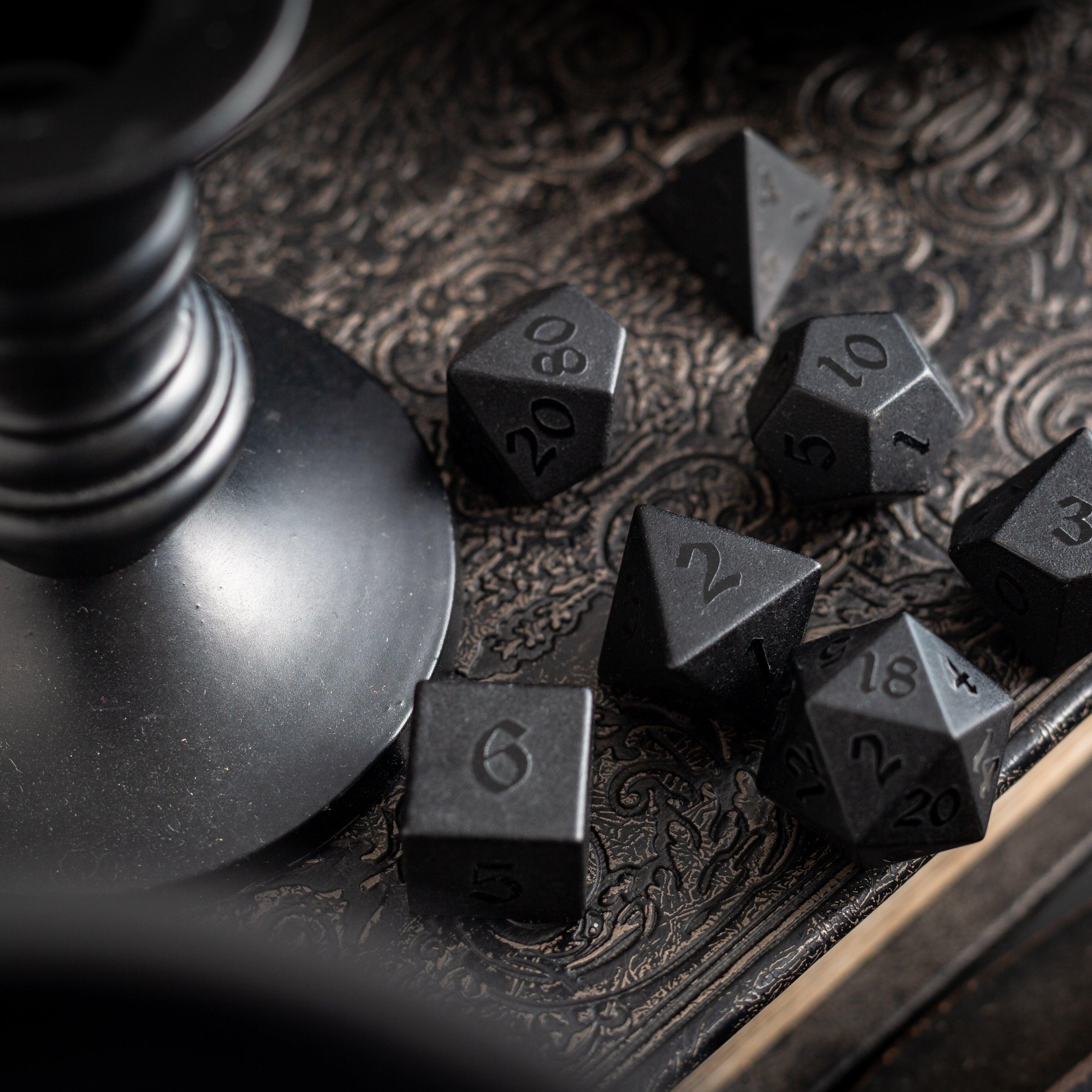
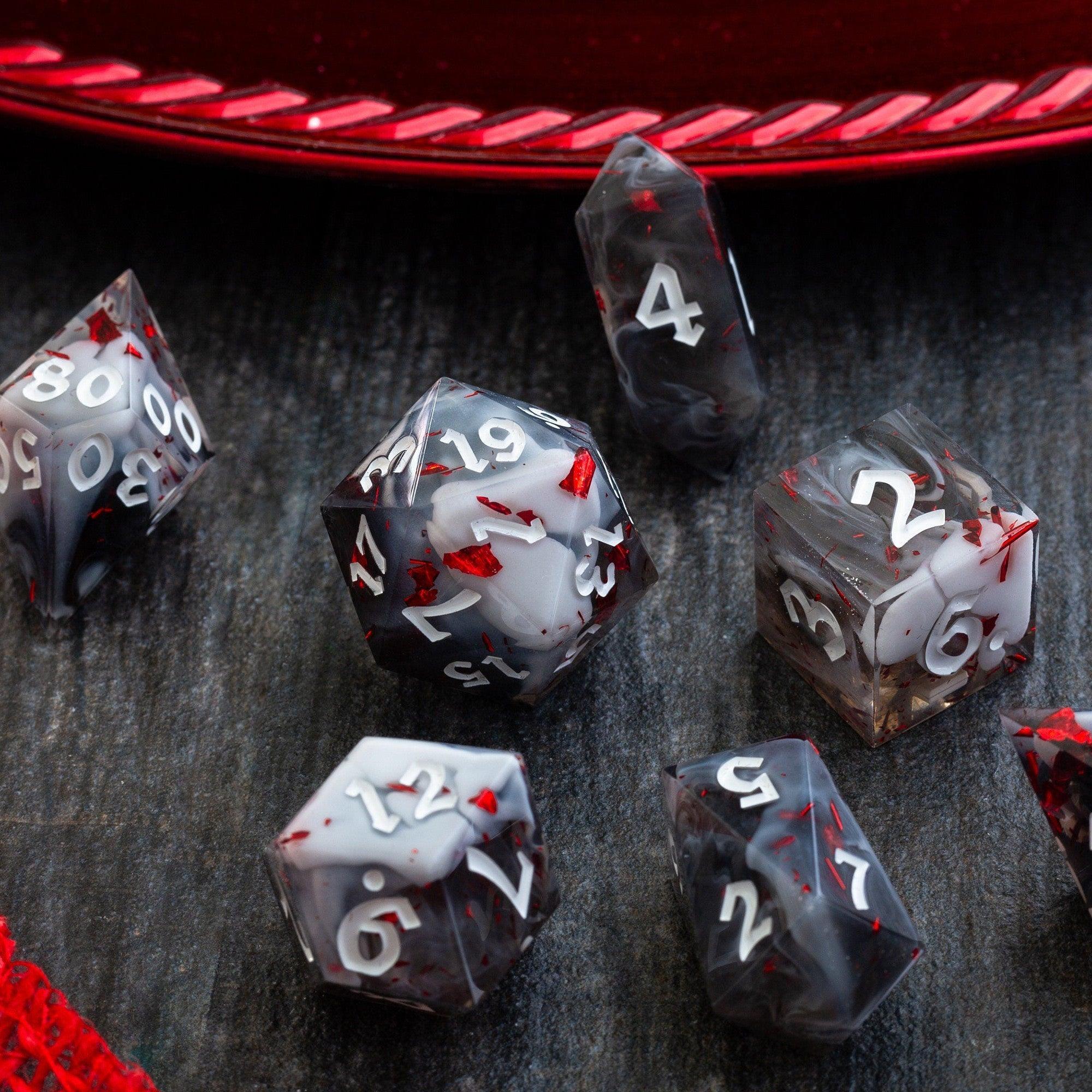
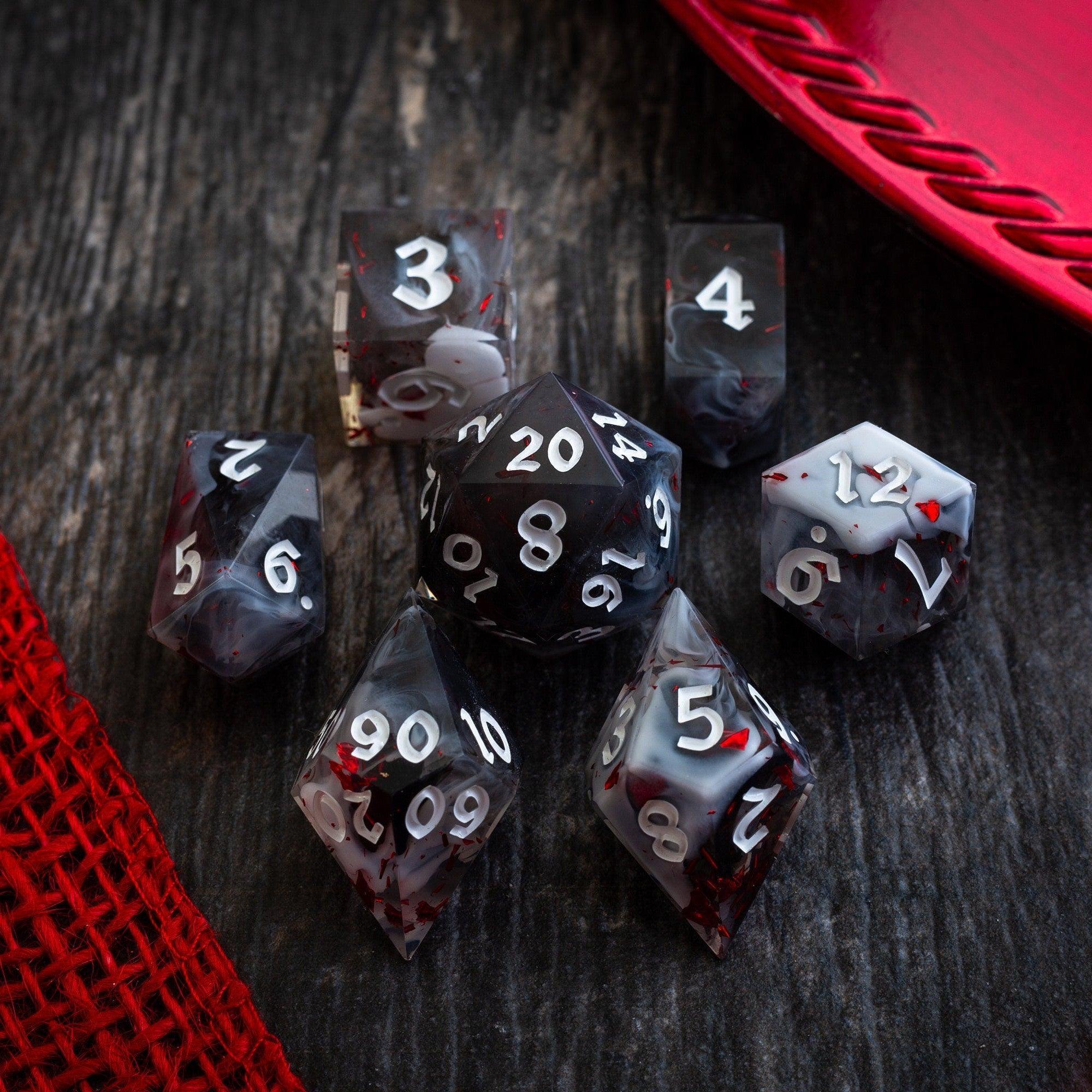
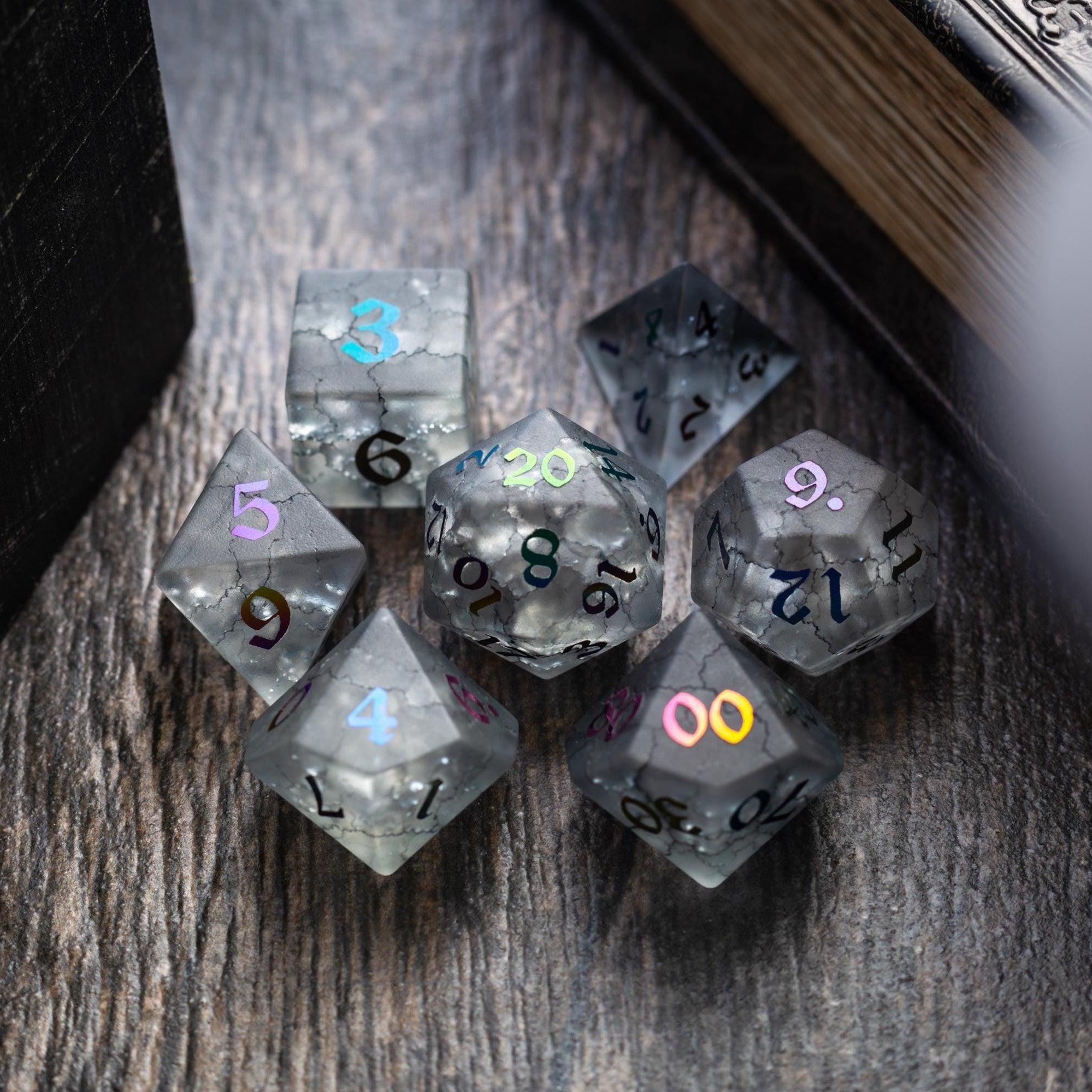
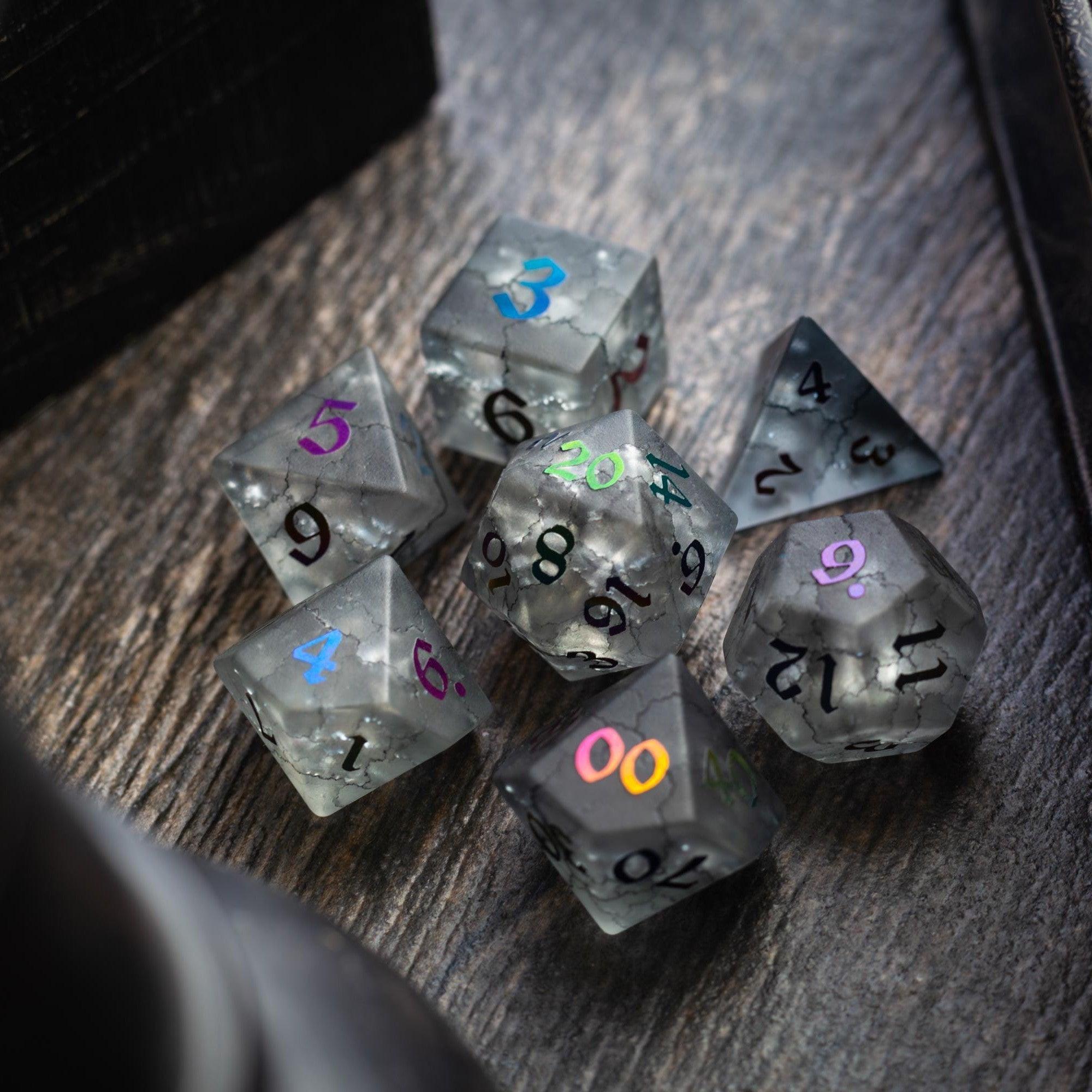
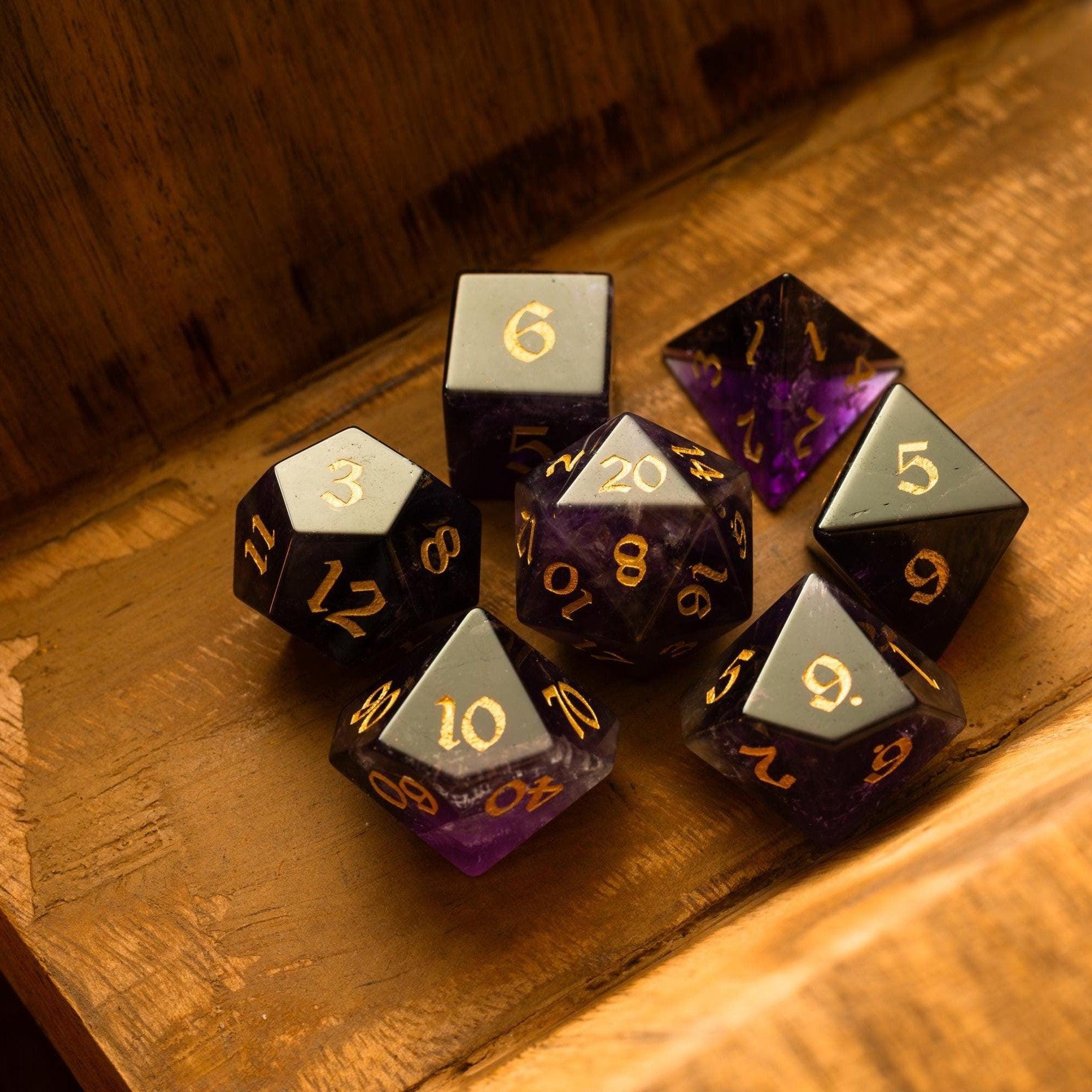
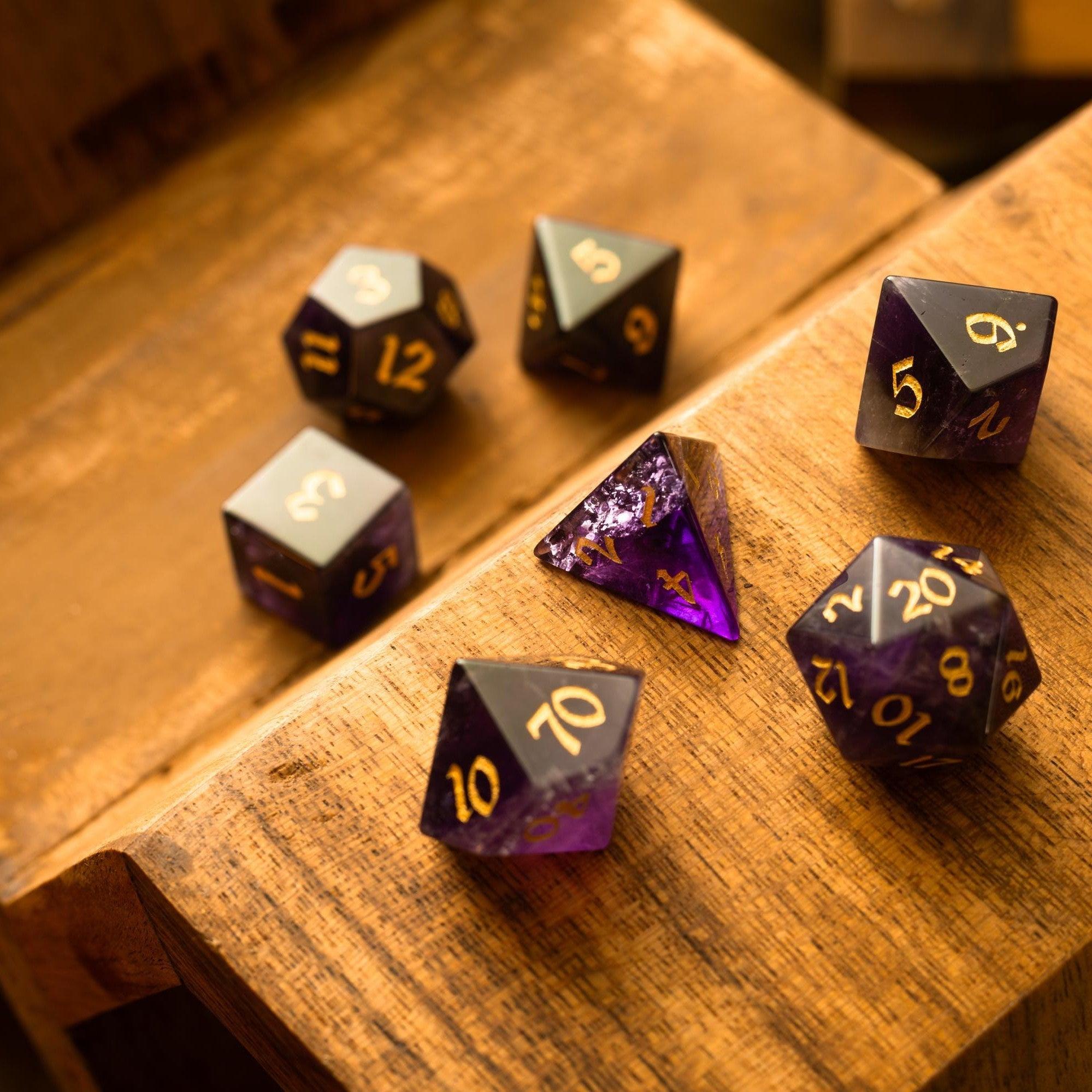
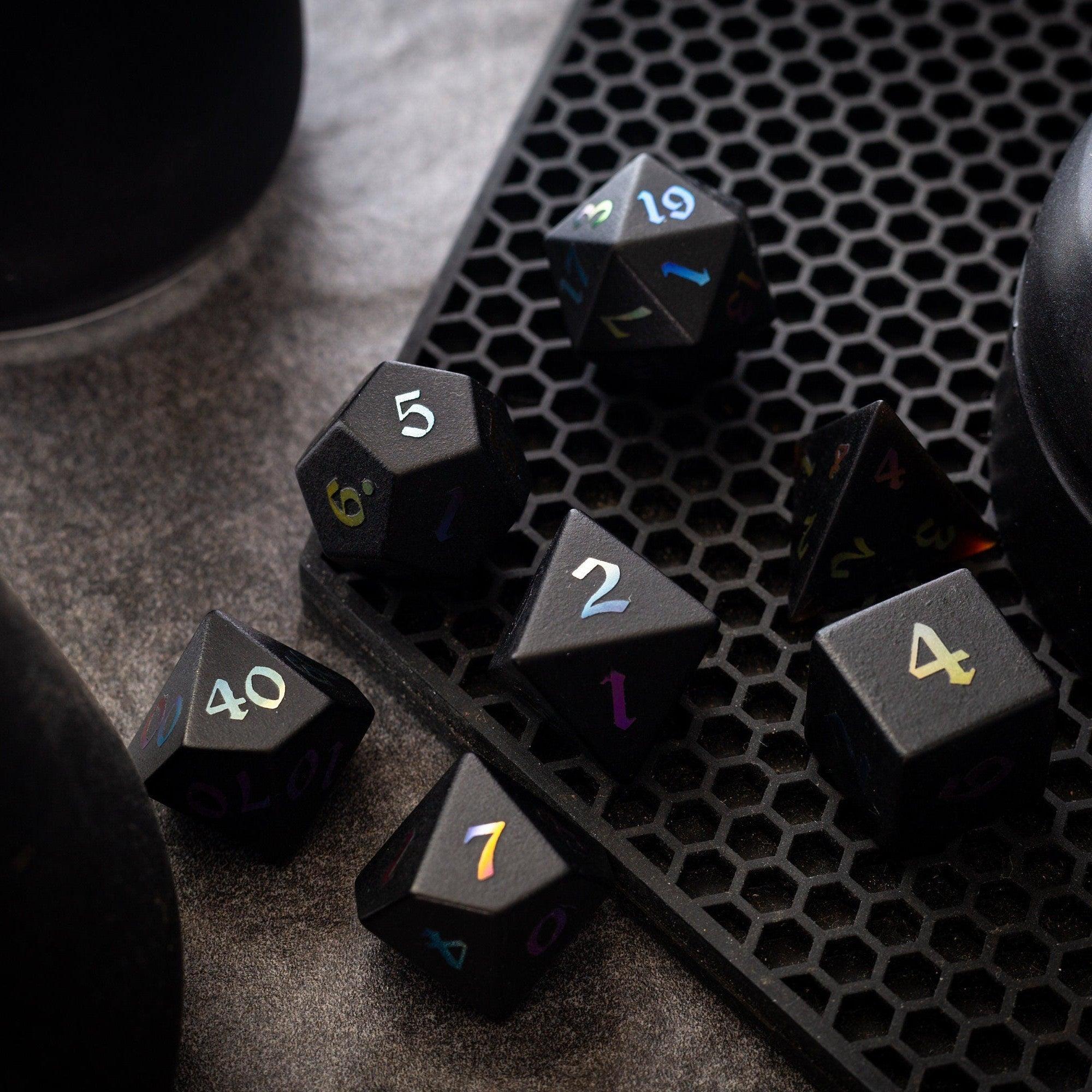
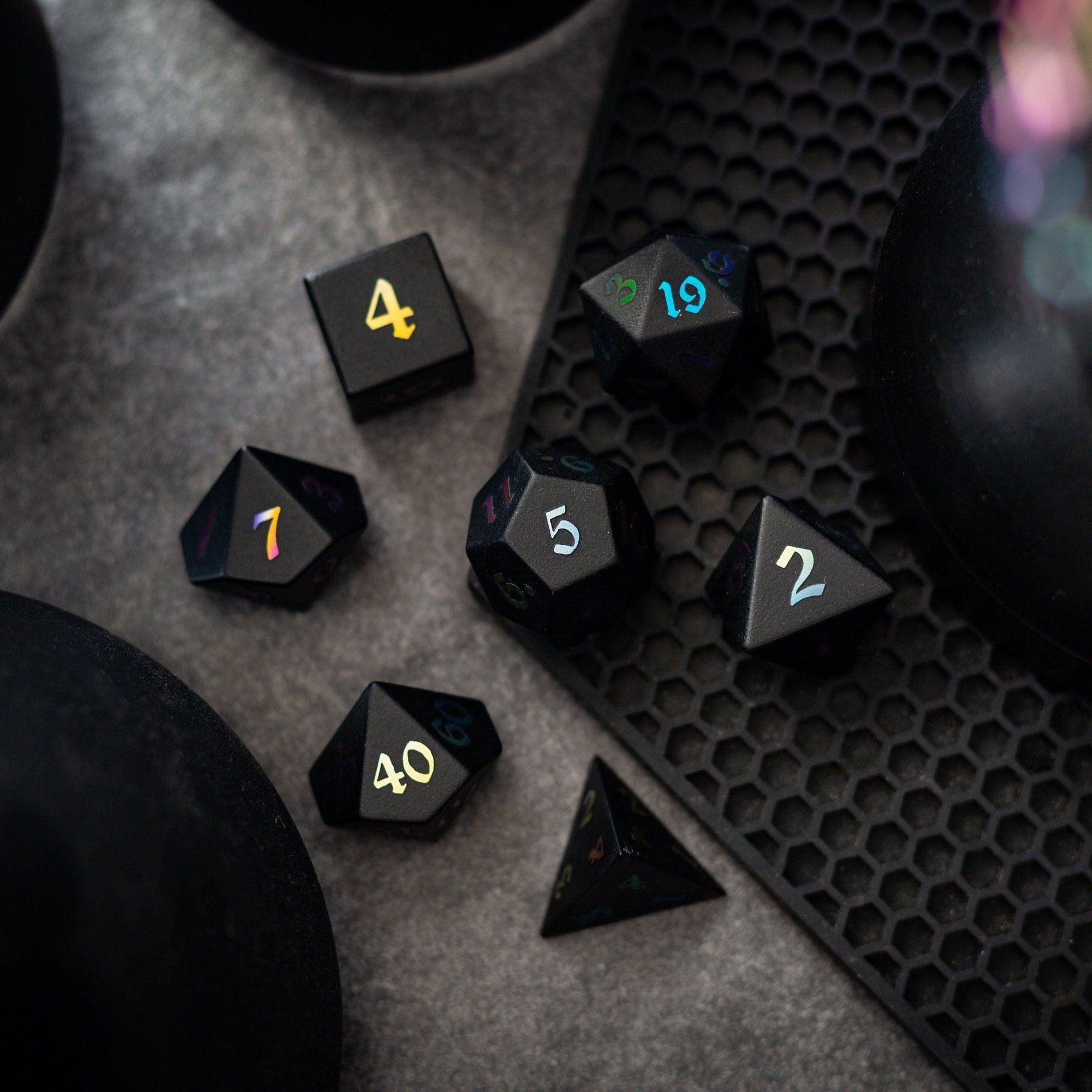
Leave a comment
This site is protected by hCaptcha and the hCaptcha Privacy Policy and Terms of Service apply.